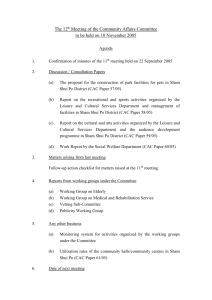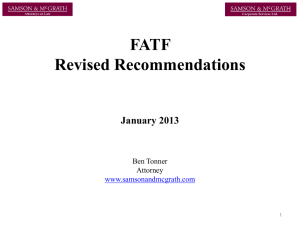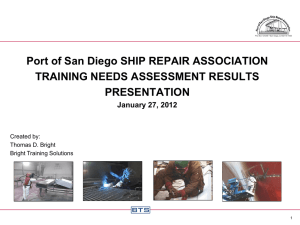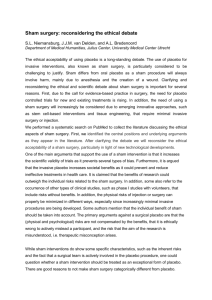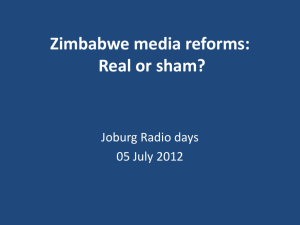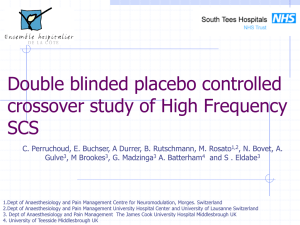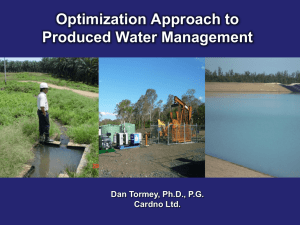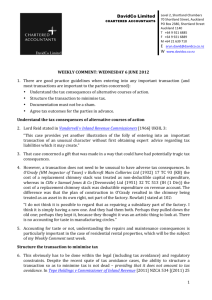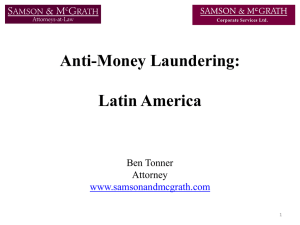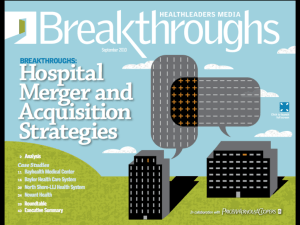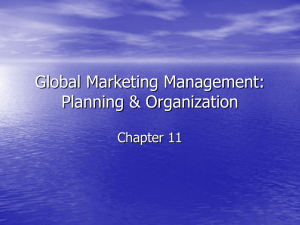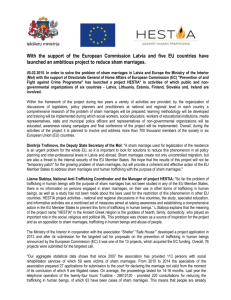PowerPoint - The Nassau Conference
advertisement
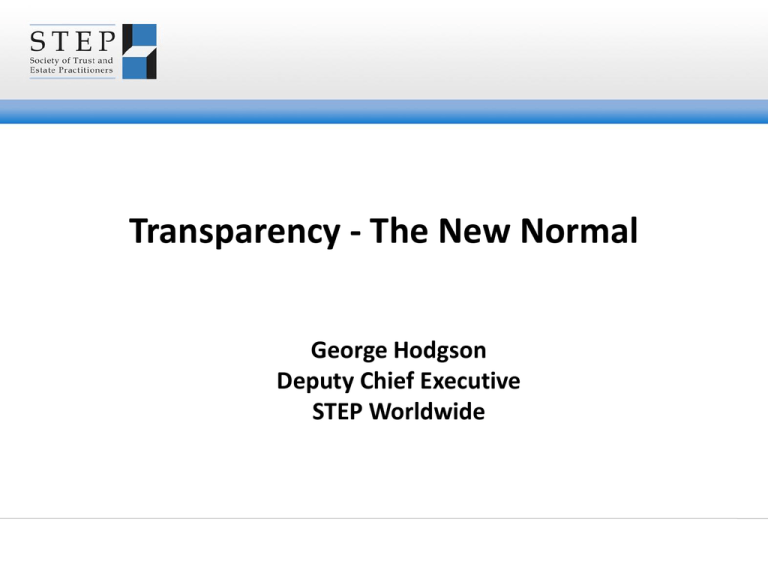
Transparency - The New Normal George Hodgson Deputy Chief Executive STEP Worldwide The Growth of Offshore • Mid-1950s – Growth of euro markets • 1970s – $ breaks gold link, fixed exchange rates begin to disappear • 1979 – UK abolishes Exchange Controls • 1980s – Exchange controls disappear through most of developed world 25 Global Cross Border Flows, % of GDP 20 15 10 5 0 1995 1996 1997 1998 1999 2000 2001 2002 2003 2004 2005 2006 2007 2008 2009 2010 2011 2012 25 Assets Held Offshore, $ trillion TJN 20 15 BIS 10 IMF 5 0 1999 2005 2010 Policy Responds to Fill the Gaps • 1980s – Multilateral Convention on Mutual Administrative Assistance on Tax matters. FATF formed • 1990s – G-7 debate on Harmful Tax Practices & Tax Havens, OECD report on Harmful tax Competition • 2000s – EU Savings Tax Directive, OECD Global Forum created, TIEA programme launched – with blacklist, UBS fine for assisting US tax evasion, UK/Liechtenstein LDF • 2010s – FATCA, UK CD/OT IGAs, US/Swiss amnesty, Swiss sign Multilateral Convention, CRS launched, UK public corporate register of beneficial ownership, EU proposals for equivalent trust register New Strands - The Risk Based Approach, the theory • • • Only wholly new FATF Recommendation in 2012, now being implemented Countries must conduct National Risk Assessments & ensure measures in place to address high risks FIs must identify & assess risks and put effective measures in place Risk Based Approach – the practice • • • • • UK lead regulator published list of over 90 ‘high risk jurisdictions’ – including Brazil, India and China List withdrawn under political pressure, but… Standard Chartered fined $300 million and barred from dealing for ‘high risks clients’ in HK and UAE US Treasury plans to require FIs to collect beneficial ownership information and make it available NB - Biggest lobby for trust registers is the banks! The Next Stage – Looking Inside The Box? Q: As Governments get a much clearer view of where the real economic benefits of structures accrue, what are they likely to do with this information? A: Tax authorities are likely to begin to take a much more closer interest in structures where the legal status does not seem to match the economic reality. Looking inside the box - 1 The Credit Suisse Case “According to the statement of facts filed with the plea agreement, Credit Suisse employed a variety of means to assist U.S. clients in concealing their undeclared accounts, including by: • assisting clients in using sham entities to hide undeclared accounts; • soliciting IRS forms that falsely stated, under penalties of perjury, that the sham entities were the beneficial owners of the assets in the accounts” Looking inside the box – 2 The Belize Case The conspirators “devised not only a fraudulent scheme but an elaborate corporate structure based on lies and deceit…they set up sham companies with figureheads at the helm in attempt to deceive US law enforcement and regulators “ Unites Stated Attorney Lynch Looking inside the box - 3 Developing Jurisprudence “Something may be found to be a sham even when the parties to it intended it to have its legal effect. That is significant for trustees and their advisers who cannot be satisfied that what they have done, or advised upon, is not a sham just because the legal consequences created were intended by the parties.” Justice G.T. Pagone, Judge of the Federal Court of Australia Looking inside the box - 4 UK Corporate Register Bill Aim of Bill - “Register of people with significant control” Definition of significant control - “X has the right to exercise, or actually exercises, significant influence or control over the activities of that trust or firm” The Bottom Line • By 2020 we will have: – Automatic tax information exchange between most major economies – Easier access to beneficial ownership information in most major economies – Public beneficial ownership registers in some major economies – A risk averse banking system increasingly wary of dealing with anyone not participating in the above! – Tax authorities with much clearer views of where economic benefits accrue in structures. Questions for practitioners • In a transparent world, will we see: – Reduced client appetite for complexity? – Reduced appetite for international diversification? – A shift away from trusts being used for tax planning, with focus being on inheritance planning? – The risk appetite of the banking system becoming an increasingly important issue for advisers to consider? – The nature of various structures being increasingly challenged by tax authorities?
